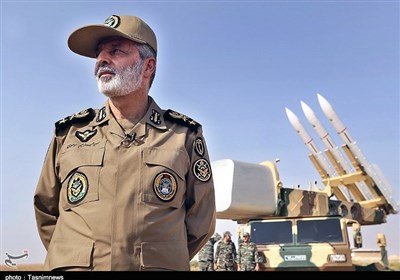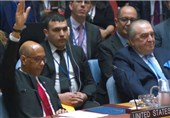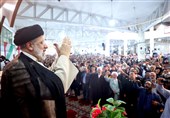Ayatollah Khamenei Stresses Muslim World’s Scientific Progress
TEHRAN (Tasnim) – Leader of the Islamic Revolution Ayatollah Seyed Ali Khamenei urged efforts for scientific progress in the Islamic world, voicing Iran’s readiness to share its scientific achievements and expertise with other Muslim nations.
“The Islamic world’s elites should establish a large-scale intellectual movement and a public demand for scientific growth and reaching the peak of science and knowledge,” Ayatollah Khamenei said in a gathering of participants in the Congress on the Role of Shiite Islam in the Emergence and Promotion of Islamic Sciences, held in Tehran on Saturday.
Referring to the West’s use of Muslim knowledge to compensate for centuries of scientific underdevelopment, the Leader said Westerners took advantage of the achievements of Muslims to gain wealth and scientific and military power to colonize Islamic nations.
“Such conditions need to change with the scientific progress of Islamic countries, and the Islamic world can once again be at the top of human civilization,” Ayatollah Khamenei added.
The Leader also reiterated the call for Muslim unity and avoiding conflicts among Islamic denominations, stressing that any plan helping Muslims gain a better understanding of each other and allowing for synergy will contribute to Muslim solidarity.
Ayatollah Khamenei then pointed to reports by international centers that the rate of Iran’s scientific growth in recent years has been 13 times faster than the world average, stressing, “We will continue on this path until reaching the boundaries of science and knowledge.”
“Unlike the Westerners, Iran is ready to transfer its achievements and scientific growth to other Islamic countries,” the Leader said.
Ayatollah Khamenei also emphasized the need for Islamic scholars to make rapid progress in philosophy, saying that Islamic philosophy is much stronger than Western philosophy.
In comments in April, the Leader highlighted the significance of philosophy in the Islamic religious studies, urging Iranian seminaries to revive and promote philosophy.
“Eliminating philosophy from seminary schools will give the platform to people with superficial and shallow understanding to be in charge of elaborating and teaching this science. Hence, philosophy should be promoted in Qom seminary school as well as Tehran seminary school, which once used to be the hub of philosophy,” Ayatollah Khamenei said at the time.
The pinnacle of philosophical studies in Iran came in the Islamic Golden Age, when renowned Muslim polymath Avicenna (Ibn Sina) brought reconciliation between Aristotelian and Neoplatonic philosophies.
The Iranian scholar’s doctrine eventually became the leading school of Islamic philosophy by the 12th century. Avicennism was also influential in medieval Europe, particularly his doctrines on the nature of the soul and his existence-essence distinction.






